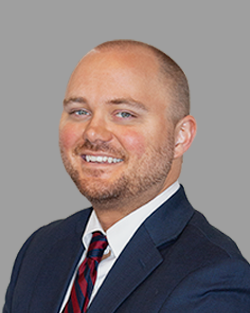June 28, 2022
Considering a Medical Practice Startup?
- by Trevor McElhaney, JD, Director of Consulting
Learn Why Conducting a “Feasibility Study” is a Valuable Foundational Step
Trevor McElhaney, JD,
Associate Director of Consulting
“Begin with the End in Mind” is the transformative quote from the late legend of business consulting/personal coaching Stephen Covey and is foundational to why feasibility studies are so valuable. More recently, Gino Wickman’s Entrepreneurial Leap or Eric Reis’s The Lean Start-Up include Vision, Understanding your “Why”, and identifying what success means to you as foundational elements for any new venture.
As these business leaders point out, for any private-practice start-up venture, healthcare providers, serving as owners/leaders, must understand and believe in the direction of and platform for their new healthcare venture. This is equally, if not more, important in the medical field as there is a growing narrative that you must be crazy or financially irresponsible if you want to start a medical practice. Ironically, entrepreneurialism is celebrated in almost every other field; however, in a field with significant demand and need (e.g., medical) entrepreneurialism is considered irresponsible. Further, medical school does not include any insight or training into what it takes to be a business owner, including hiring staff, appropriate medical billing, selecting an electronic health records (EHR) and practice management system, the credentialing process with governmental payers (e.g., Medicare and Medicaid) and commercial insurance companies, purchasing medical equipment, selecting appropriate real estate, procuring malpractice insurance, setting fee schedules, etc.
Given the environment, a necessary first step in understanding and believing in your dream is to analyze, evaluate, and review the feasibility of the venture utilizing a feasibility study. Then, you use this initial plan as the starting point for constantly going through a plan, do, check, act (PDCA) cycle to ensure your private practice will be successful.
DoctorsManagement can be a valuable partner in building your personalized feasibility study as we have a unique perspective – focusing all our professional time on fully understanding the business of medicine, as well as how social, interpersonal, educational, governmental, and environmental factors all play into the business of having a sustainable, viable medical practice. This focus has us actively working with practices that are starting, in the post start-up rapid growth phase, highly productive maturing phase, and the slow-down business succession phase.
Over the last 65+ years of providing feasibility studies, our team has narrowed the scope in an effort to help focus the efforts of future practice owners. At DoctorsManagement, feasibility studies for start-up medical practices include these two key components:
- Three-Year Financial Pro Forma
- Demographic Study
The Three-Year Financial Pro Forma utilizes an interactive, and assumption-based model to provide feasible scenarios for the practice’s financial feasibility. Leaning on various resources, including benchmark data for private practices in the same or similar specialties, independent third-party research, and DM’s team of experienced consultants, the financial pro forma provides a three-year snapshot of the expected profitability and cash flow for the new venture. This analysis also relies on the input and expectations of the client to provide accurate and feasible production data (e.g., startup costs, patient volume, service mix, collections, expected computerized procedural terminology (CPT) reimbursement, etc.), as well as projected expense data specific to the practice (e.g., staffing mix, liability insurance, compensation rates, occupancy expenses, payroll services, cost of capital (e.g., debt/interest rates), etc.
Following the initial model, the interactive pro forma is a valuable tool for short- and long-range planning, following the PDCA cycle listed herein, as it is easily updated and modified to reflect the changing economics within the practice with real (versus projected) data.
The demographic study, utilizing data from a trusted third-party vendor on up to five distinct zip codes, provides an in-depth analysis of various factors, including but not limited to:
- Population Density;
- Competing Practices;
- Medical Insurance Statistics, including Type of Coverage and Payer;
- Median Household Income; and
- Population Growth Projections
The demographic study allows clients to pinpoint specific areas, within a more generalized area, wherein he or she believes the practice will have the most success in both the short- and long-term.
Note, many future business owners reach out to DoctorsManagement based on an interest in professional help with developing and writing a detailed business plan. While business plans can have value in certain settings, our experience indicates that the feasibility study (e.g., financial pro forma and demographic analysis) takes the place of this need. Where a business plan is required, whether for a non-traditional investor or other need, DoctorsManagement finds it useful to include an executive summary, outlining the key components of the business – cash flow projection, site location, projected staffing mix, initial capital expenses, and overall finance need – which are all easily attainable and easy to follow in the feasibility study.
Each startup medical practice is different, but the foundational metrics remain the same – any venture needs to understand the specific economic outlook based on the productivity and expense assumptions, as well as believe in the location wherein they will build their dream.
If you are interested in starting your own practice check back for our coming article series “I’d like to start a medical practice; am I crazy?” or fill out a consultation form for guidance.
By Trevor McElhaney, JD, Associate Director of Consulting


























